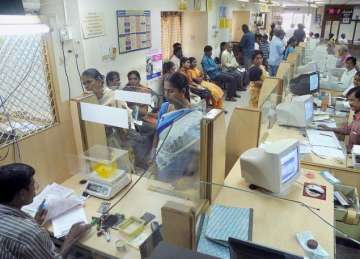Union Budget 2018: From capital infusion to digitisation, bankers expect a lot from Arun Jaitley
Finance Minister Arun Jaitley is expected to unveil provisions to make things move fast in positive direction and to continue the momentum to energise the lenders.

The Budget for FY 2018-19 will be critical than ever for the banking sector. In last two-year, the sector saw government’s unprecedented focus on reforms. This time, Finance Minister Arun Jaitley is expected to unveil provisions to make things move fast in positive direction and to continue the momentum to energise the lenders.
Union Budget 2018-19 LIVE Streaming: When and where you can watch FM Jaitley's speech
Initiatives and expectations
Capital infusion
The government has already said that it will infuse Rs 1 lakh crore into PSBs to perk up public sector banks that have been hit by huge non-performing assets (NPAs). The mountains of NPAs, which amounts to over Rs 3 lakh crore, shows that something has gone wrong in past and this needs to be fixed urgently to deal with the unwanted burden that in return is hurting the economy.
Stating that government's prime responsibility is to keep PSBs in good health, he said, “We have announced recapitalisation of PSBs in October 2017 to the tune of Rs 2.11 lakh crore over two years. I have already moved a supplementary grant in Parliament on this. The entire objective of this exercise is to keep financial institutions in good health.”
Jaitley adds that another motto this exercised would also ensure what happened in the past leading to large amount of NPAs does not repeat itself.
Banking Secretary Rajiv Kumar believes that the plan will enable additional credit offtake capacity of PSBs by over Rs 5 lakh crore.
Digitisation push: Post-demonetisation, the government has taken various measures to promote digitisation. From launching app-based services to announcing bearing merchant discount rate (MDR) charges on digital transactions up to Rs 2,000 for two years, all moves have yielded some good results.
In the upcoming Budget, it is expected that the government may introduce additional incentives like tax rebates on digital transactions.
Bankruptcy code: The government may amend the insolvency law depending on recommendations of the panel reviewing issues related to the legislation. While everything is time-bound under the Insolvency and Bankruptcy Code (IBC), the concern is how the interests of stakeholders are to be balanced.
Home loan benefits: Banks want higher tax deduction on principal repayment of housing loan under Section 80C. Given the fact that the real estate sector is not performing as per the expectations, especially after November 8, 2016 decision to scrap high value currency notes, people should be given some more rebate in tax deduction.
Insurance penetration: The government has slapped a high GST rate of 18% on insurance premium. The financial institutions are of the view that this should be revised.
Tax-friendly retirement plans: Most of the companies want the government to make retirement plans more tax-friendly to increase participation. Institutions say that pension from annuity is currently treated as income and taxed accordingly which is unfavourable.
Regulatory timelines: The industry expects a clear definition on various regulations like International Financial Reporting Standards (IFRS), Margin requirements (both initial margin and variation margin) that generally apply to all non-centrally cleared derivatives, New Basel III norms (an international regulatory accord that introduced a set of reforms designed to improve the regulation, supervision and risk management within the banking sector).
Credit growth: A survey by FICCI and the Indian Banks' Association (IBA) revealed that bankers want accelerated investments and interest subvention for investments in long gestation infrastructure projects, along with lowering of corporate tax rate and Minimum Alternative Tax (MAT) to boost credit growth.
According to it, banks are in favour of reduction in corporate tax rate from 30 per cent to 25 per cent, lowering of MAT rate to 15 per cent and enhancing tax deductions and exemptions for individuals.
"The bankers have suggested specific measures that may be announced in the upcoming Union Budget to facilitate credit growth and investment pick-up in the economy. They recommend accelerated investments in infrastructure sector as well as interest subvention for investments in long gestation infrastructure projects," the survey said.
The survey findings reveal that banking sector performance during the July-December 2017 period remains more or less similar to the previous six months.
There are 21 PSBs in the country that comprise 70 per cent of the banking industry.